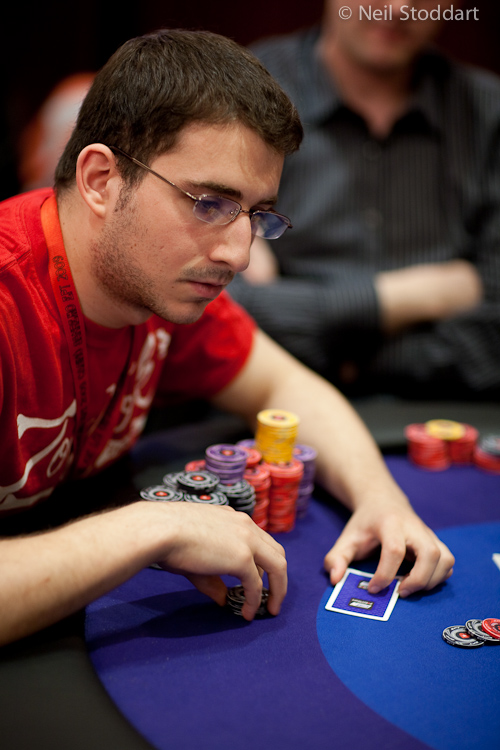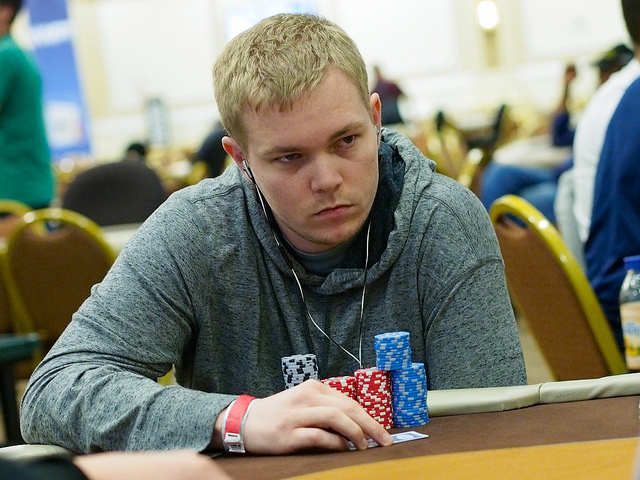Steven Silverman Poker Death
For every story you’ve heard about the college dropout who turned a modest online poker bankroll into millions, there are dozens more about the college dropout who failed to make it as a professional and regretted his decision.
However, one story you probably haven’t heard is the one about a guy who quit school, won millions and then dropped out of poker, opting instead to return to academia and finish his education.
That guy is Steven Silverman, a former online juggernaut playing under the name “zugwat” who tore up high-stakes online cash games before abruptly deciding he’d had enough and needed a major lifestyle change.
Now 25, the Maryland native is back on the tournament circuit and proving to his opponents that he hasn’t lost a step.
Steven 'Zugwat' Silverman GWD972 GPID is a unique identification number, assigned to each individual player, that will be used in the future in order to register for most poker tournaments around the world. Poker Beginnings. Steven Silverman was born and raised in Derwood, a suburb of Rockville, Maryland about 40 minutes from Washington D.C. The younger of two boys, Silverman was influenced by the. Professional poker player convicted of brutally beating and stabbing his parents to death to collect $1m inheritance. By Daily Mail Reporter Updated: 16:18 EST, 29 March 2011. Obituaries can vary in the amount of information they contain, but many of them are genealogical goldmines, including information such as: names, dates, place of birth and death, marriage information, and family relationships. World Poker Tour and partypoker, an online poker company Sexton cofounded, confirmed his death.Fellow poker champ Linda Johnson said Sexton 'had been battling prostate cancer' that had spread to.
Poker Beginnings
Steven Silverman was born and raised in Derwood, a suburb of Rockville, Maryland about 40 minutes from Washington D.C. The younger of two boys, Silverman was influenced by the strong work ethic of his parents, who both work for the government. Mark Silverman works in computer security for the National Institute of Health and his wife Phyllis works in biostatistics, approving new medical devices for the Food and Drug Administration.
Steven, however, didn’t quite apply that work ethic to his studies, choosing instead to pour himself into poker, which he discovered at age 14.

“I picked up poker in camp the summer before 10th grade,” Silverman recalled. “A friend introduced our group to the game, but we didn’t really understand the rules. I remember that there was no preflop or flop action, just two rounds of betting with no check-raises. When I got home, my brother Aaron signed me up for an online account and I started playing freerolls and clearing deposit bonuses.”

Silverman ran up his first modest bankroll and already had a lot of experience under his belt entering his freshman year at the University of Maryland, where he chose to major in mathematics.
“I really wasn’t putting to much effort into anything other than poker and I wound up getting smashed by my classes,” he admitted.

Dropping Out
Much to his parents’ dismay, Silverman dropped out of college and focused on trying to make it as a professional poker player. He befriended and subsequently moved in with fellow College Park resident Greg Merson and the two began grinding the local underground $1-$2 cash games. Silverman even dealt at a few of the games, but two robberies and an unsuccessful run of cards made him turn to more traditional games.

Silverman would make the occasional trip to Turning Stone Casino in New York and there he ran into young pros like Christian Harder and Randal Flowers.
“They were on a completely different level and made me realize that I really didn’t know what I was doing at the time, especially when it came to online poker,” he said. “I learned that I wasn’t ready. In a way, they kind of intimidated me into going back to school.”
His first hiatus from school was deemed a failure, but his second was far from it. Just one semester after returning to classes, Silverman racked up a number of big scores online and once again left the University of Maryland.
A Successful Run
Still not 21 years old, Silverman focused on his online play with the occasional international poker trip. At his first ever live tournament at the WPT North American Poker Championship in Niagara Falls, he finished in 10th place, earning $66,395. In San Jose, Costa Rica on the Latin American Poker Tour, he finished third in the main event, scoring $106,167.
At the Full Tilt Online Poker Series (FTOPS) he won a $1,000 event for a whopping $350,450. He followed that up with a deep run at the EPT Grand Final main event in Monte Carlo for another $126,100.
Even with his tournament play improving, Silverman strived to improve his overall game by delving into cash games.
“At some point, I transitioned into heads-up sit-n-gos and that was going well, but then I spent a summer living in a beach house in New Jersey with Dan Smith and Andrew Lichtenberger. That’s when I started playing more cash games and really learned a lot.”
“A lot” was an understatement. Silverman began jumping into some of the biggest cash games online, playing $50-$100 and $100-$200 no-limit games regularly, taking on the world’s best and winning.
Going Back
By mid-2009, Silverman had become one of the most feared players online. He had become a millionaire and was on top of the game at the high point of his career, but instead of pressing forward, he decided to pump the brakes and return to the University of Maryland to finish his degree.
“I saw it as something to do in the meantime,” he admitted. “It wasn’t really a way out of poker and I didn’t really do it for my parents. I just figured that I might as well finish it up while I was still young.”
His decision baffled his peers. Why would anybody quit poker after such a successful run? The truth is that Silverman never intended to quit poker. He figured he could do both simultaneously, but soon realized that his classes would need his full attention.
“I guess I’ve always had an all or nothing mentality, so when I went back to school, I jumped in head first. I was completely focused on getting my degree. One year, I even skipped the WSOP main event for some summer classes.”

Silverman was double majoring in biochemistry and nutritional science. His sleep schedule was normal for the first time in years and he spent his free time working his poker body into gym shape. But when it came time to play cards, Silverman showed that he hadn’t allowed his skills to become rusty.
Riding A Heater
In the summer of 2012, a break during his senior year, Silverman started a run that included four final tables and more than $425,000 in earnings. He made final tables at the Five Star World Poker Classic, EPT Barcelona, Bellagio Cup VIII and highlighted it all with a third-place finish in the $10,000 buy-in WSOP Pot-Limit Omaha Championship.
Steven Silverman Poker Death Certificates
Despite the run, Silverman quickly returned back to Maryland to finish his final semester. After graduating in December, he picked right back up where he left off with a fourth-place finish in a $5,000 event at the PokerStars Caribbean Adventure for $69,040. A month later, he took sixth in the EPT Deauville High Roller for another $64,786.
Then in May, he headed back to Monaco for the EPT Grand Final High Roller and came out on top, banking $1,016,745, the largest score of his career. When asked what the money meant to him, Silverman answered in typical high-roller fashion.
“I’m already used to insane swings, but it was a nice bankroll boost,” he admitted. “If anything, it gave me a little more security and peace of mind when it comes to scheduling more big tournaments. Honestly, it’s not really $1 million to me, it’s just money I will use as ammunition to win more money.”
Steven Silverman Poker Death Notices
Silverman went on to explain that a disregard for money is essential to becoming a successful high-stakes player.
“Occasionally after a big loss, you’ll start to think about what the money could’ve bought you, but that’s not a healthy way of thinking. You have to have a disconnect between the money you are wagering and what that money is actually worth. It’s a game and money is the way we keep score.”
Moving Forward
At the 2013 WSOP, Silverman continued to add to the pile, scoring an additional $123,202 for a third-place showing in a $3,000 event. Then in August, he entered the $100,000 buy-in Seminole Hard Rock Poker Open High Roller and won his second title of the year, along with $891,660.
Steven Silverman Poker Death Penalty
At just 25-years-old, he has already racked up more than $3 million in tournament earnings and an undisclosed sum in the biggest online cash games in the world. When he’s not traveling the tournament circuit, Silverman splits time between Toronto for online poker and his girlfriend’s home in Ann Arbor, Michigan. Furthermore, his parents are now fully supportive and in his corner.
“They weren’t really interested in the high-stakes cash games, but they love tournaments because of the excitement and the press coverage,” he explained. “I gave them a lot to worry about early on, but I think I have done a good job of reassuring them I’ll be fine.” ♠